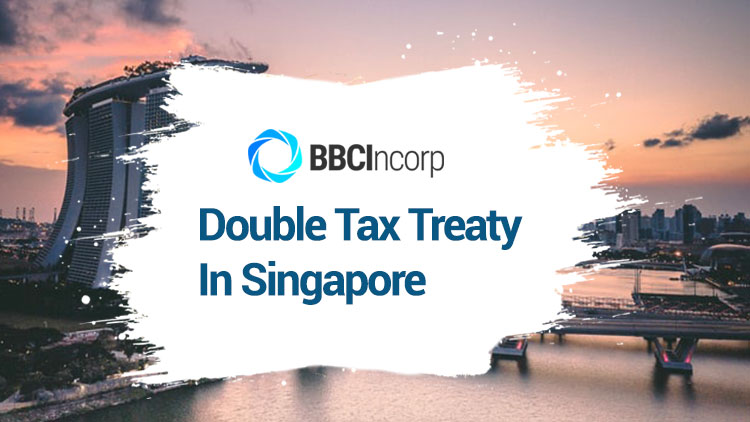
Regarding Singapore taxation, double tax treaties are the key factor to promote fair and equal tax treatment toward Singapore businesses and their foreign partners. These tax treaties are also proof of Singapore as a prominent pro-growth ecosystem in the world.
This article will provide you some of the most essentials of double tax treaties in Singapore.
1. Why Singapore ratified double tax treaties?
Singapore holds the view that double taxation constitutes a great impediment to its own economic standing as well as world trade. Therefore, to reinforce the city-state’s position as the key facilitator of international commerce, several steps have been taken forward in the effort to eliminate this unfair tax issue.
Singapore so far has concluded Avoidance of Double Tax (DTA) agreements with more than 80 countries, for example India, Australia and Indonesia. So very slim is the chance your business is taxed by both jurisdictions on the same source of income. Except for when you do business with countries that are not in accord with Singapore. In such cases, you can have recourse to unilateral tax credits to claim reliefs.
Nevertheless, the government of Singapore is still working toward agreements with these unwilling countries to further widen their network of avoidance of DTA. So perhaps one day they can manage to rid the city-state altogether of double taxation.
Free ebook
Get your Singapore business started with key matters covered in our all-in-one guideline
- Incorporation procedure
- Annual compliance requirements
- Tax structures
- Employment landscape

2. What are the types of Singapore Double Tax Agreements (DTA)?
There are typically 2 types of DTA that Singapore has come to ratify: Comprehensive and limited agreements.
Comprehensive agreements: they take into account all types of incomes.
Limited agreements: they are confined to income derived from shipping and/or air transport
3. Who can take advantage of Singapore’s double tax treaties?
In general, a DTA would cover qualifying residents and certain types of income, which are clarified below.
Persons covered
You would be classified as a person covered if you are a resident of one of the Contracting States. Under the Singapore Income Tax Act, only a qualifying resident can reap the benefits from the application of the DTA.
Taxes covered
The following is a list of key income types that are covered according to the typical DTA agreements:
- Income from immovable property
- Business profits
- Shipping and air transport
- Associated enterprises
- Dividends
- Interest
- Royalties and fees for technical services
- Capital gains
- Independent personal services
- Dependent personal services
- Pension
- Government service
- Other income
4. How to determine residency and permanent establishment?
If you are a qualifying resident or your permanent establishments can meet certain conditions, you can take advantage of DTAs.
Residency status
The DTA would apply a rule dubbed “tie-breaker” to help you determine your tax residency for the sake of DTA provided that you are deemed a tax resident in both contracting jurisdictions on the basis of the respective domestic rules.
If you are qualified as an individual, according to IRAS, this rule would apply in this following order of priority:
- In which jurisdiction does the individual have a permanent home available to him;
- To which jurisdiction are the individual’s personal and economic relations closer;
- In which jurisdiction does the individual have a habitual abode; and
- Of which jurisdiction is the individual a national.
In the event that you have employed the rules mentioned above to determine your tax residency but to no avail, it follows that the responsible authorities would jointly resolve your matter.
For non-individuals (such as a partnership, limited liability partnership), chances are they would be deemed a resident provided that they operate in a jurisdiction where their effective management is conducted. “Effective management” denotes the strategic matters that are essential to the day-to-day operation of a given business.
Permanent Establishment
The permanent establishment of your company is the location where its operations and business activities are performed either wholly or partly. These venues could be the place of effective management or your company’s branches, offices, factories, and so forth. This term is used mainly for determining taxation right for the business profits of a non-resident company.
In addition, whether or not a place is deemed a permanent establishment is based on the extent to which certain activities are conducted, which include:
- A building site or a construction, assembly or installation project that lasts more than a specified period;
- Supervisory activities connected with a building site or a construction, assembly or installation project that lasts more than a specified period;
- Services (including consultancy services) furnished by an enterprise through its employees that continue for more than a specified period;
- The presence of a dependent agent (i.e. not an agent of independent status) who has, and habitually exercises, a general authority to negotiate and conclude contracts on behalf of an enterprise
5. What are the taxing rights of an individual country for different types of income?
As we mentioned above, there are more than a dozen types of income that can benefit from DTA.
Income from the immovable property is doubly taxed by both jurisdictions. If you rent out a real estate, chances are you may be taxed by both the country of source – i.e. where your real estate stands, and the country of residence – i.e. where you reside. However, you would be given a credit against the tax you pay in the country of source.
Business profits would not be taxed in the source jurisdiction provided that they are not generated from a permanent establishment there. For those that accrue directly from your permanent establishments, a certain amount of expenses attributable to the permanent establishment can be deducted when arriving at taxable profits.
Airline or shipping profits are typically exempted either wholly or partially. If yours are entitled to a 100% exemption in a given contracting country, you are invited to assume that they would be subject to tax solely in your country of residence.
Dividend income would be subject to tax in your country of residence. And whether or not it would be taxed at the country of source, which is where the company paying the dividend is resident, is at this jurisdiction’s discretion. But you can rest assured that, in most cases, you would be exempted partially or even wholly, or be subject to a favorable withholding tax rate.
Interests you earn within the country of source – i.e. where the interests accrue would typically be entitled to an exemption or a reduced tax rate
Royalty income could be taxed at a reduced rate or exempted altogether depending on the terms of the DTAs of different jurisdictions.
Professional services income would be taxable in your country of residence. If you render the service through a fixed base in the source state, your derived income might be taxed in the source state. Professional services encompass all of those that are provided by physicians, lawyers, engineers, architects, dentists, accountants, and so forth.
Income from employment might be taxable in the source state whenever your employment is carried out from the source state. Nevertheless, you can seek exemption provided that either (1) you are a non-resident – i.e. you are physically present in less than 183 days, (2) your employer is a resident of the contracting country, or (3) your salaries are not held by a permanent establishment of the employer in a contracting country. Depending on the policy of this country, your income may or may not be subject to taxes.
Government service payments of government employees who work in a foreign jurisdiction are entirely exempt in the country that is subject to the conditions. These payments include salaries, wages, or similar rewards paid by the government of a contracting country to persons rendering certain types of personal services in a foreign country.
Tax on capital gains could vary depending on different contracting countries and their DTAs’ policy. Capital gains are those from the sale of immovable property and from sales of financial assets.
6. How to eliminate double taxation
There are many methods you can adopt to mitigate double taxation. They are usually offered under the domestic tax laws of a country or under the tax treaties. Here are some you should take into account
Tax credits
If you are a taxpayer suffering from the foreign tax, you will be given a tax credit to deduct against the domestic tax that is imposed on the same income. The amount of tax credit to which you are entitled is whichever is the lower of the foreign tax paid and Singapore tax payable on the income.
Tax exemption
If your foreign income is exempt from domestic tax, you can avoid double taxation. The exemption can be complete or partial.
7. What are some of the typical tax reliefs under Singapore DTAs?
There are typically 2 methods you can employ under Singapore DTAs: tax credit on foreign tax paid and tax exemption of foreign-sourced income.
Tax credit on foreign tax paid
Foreign tax paid on the foreign-source income can be credited against Singapore tax payable on the same income type under Double Tax Relief (DTR) covered in DTA provisions.
Moreover, the amount of tax paid on income derived from countries that have yet to conclude DTA with Singapore can also be credited against if you claim the unilateral tax credit.
Tax exemption of foreign-sourced income
Singapore tax law specifies certain conditions under which foreign income can enjoy full tax exemption subject to conditions.
These types of income eligible for tax exemption include:
- Income derived from any professional, consultancy and other services rendered in any territory outside Singapore;
- Foreign-sourced dividends; or
- Profits derived by an overseas branch of a Singapore resident company.
Should you have any questions regarding double tax treaties in Singapore, reach out to us by dropping a chat message or sending an email via service@bbcincorp.com
Disclaimer: While BBCIncorp strives to make the information on this website as timely and accurate as possible, the information itself is for reference purposes only. You should not substitute the information provided in this article for competent legal advice. Feel free to contact BBCIncorp’s customer services for advice on your specific cases.
- 1. Why Singapore ratified double tax treaties?
- 2. What are the types of Singapore Double Tax Agreements (DTA)?
- 3. Who can take advantage of Singapore's double tax treaties?
- 4. How to determine residency and permanent establishment?
- 5. What are the taxing rights of an individual country for different types of income?
- 6. How to eliminate double taxation
- 7. What are some of the typical tax reliefs under Singapore DTAs?
Get helpful tips and info from our newsletter!
Stay in the know and be empowered with our strategic how-tos, resources, and guidelines.


